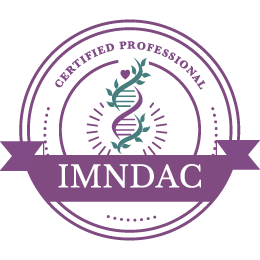
For the final assignment in my current class, I am writing a blog on how to eat more sustainably. Stick with me. Sustainability is not a simple concept. A sustainable food system is a healthy, environmentally responsible, and equitable system in which nutritious food is available to everyone. It is a system that can be repeatable by many producers in many areas of land, one that causes minimal damage to the environment and instead, diversifies the microbiome of the soil, and supports plant, animal, and human life nearby. A sustainable food system is one that is available to all people of all kinds from producer to consumer, with justice and fairness in access, price, and quality. Here, I’m sharing some not-so-obvious ways to improve your diet. Look deeper, there are new ideas here. There are small but important steps you can take to incorporate sustainable eating into your lifestyle making you, the environment, and the system better all around.
Sustainable Eating Big Idea #1- Eat Organically
Why it’s good to eat organically…
For you: We all know that fewer pesticides on our fruits and vegetables are a good thing, but we want to eat animal products that also have an organic diet. If a company is making an effort to be organic, they are more likely to adopt other healthy practices. Look for labels and then educate yourself on what they mean. I work with many people with high anxiety. The likelihood that they are deficient in critical micronutrients is high. They may also be reacting to additional, unhealthy toxins (many of which are in our non-organic foods.)
For the environment: Farming organically means working with the environment instead of against it. Through fewer pesticides and fertilizers, plants, animals, insects, soil, and water all benefit. Magnesium is one of the nutrients that are now largely depleted in our soil due to industrial agriculture practices. Magnesium benefits the soil by increasing chlorophyll production, making the plant larger (UME, 2023). Not surprisingly, Magnesium benefits us too, by calming the nervous system amongst other important jobs.
For equality: Whether or not organic foods offer higher nutrition is a debated topic in scientific research, but it makes sense that years of practicing organic farming brings benefits to all parts of the process, including bringing down the cost of nutritious food to people of all kinds, in all places. The concept of food justice is an important one and worth exploring further. Read here to learn more about how cheap, unhealthy food is creating a gap between social classes https://foodprint.org/issues/food-justice/ As our healthcare costs climb, can we really afford “bad” food choices for any of our citizens?
What you can do today: Check out the food labels and support the causes most important to you. Everything from fairness to animals, to genetic modification, to how farmers are treated can be validated with a food label https://foodprint.org/eating-sustainably/food-label-guide/
No blog on sustainable eating would be complete without delicious recipes! Organic Foods Recipes found at https://www.organic-center.org/recipes/yogurt-flatbreads-whipped-feta-and-heirloom-tomatoes


